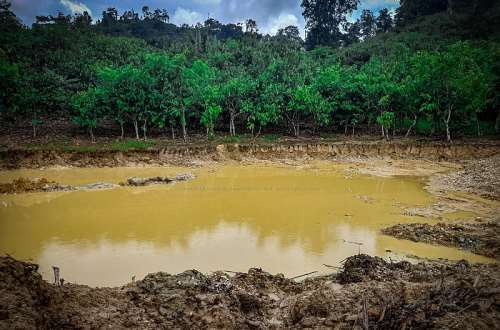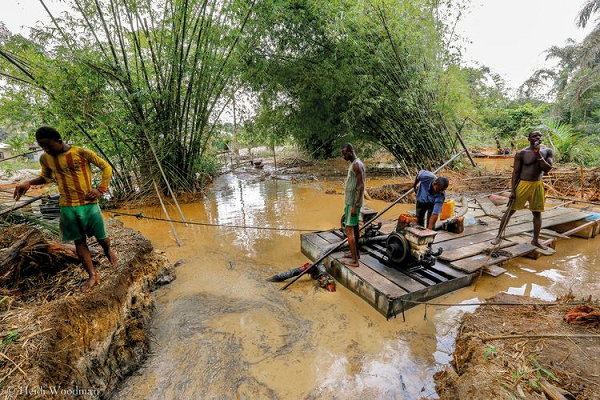The National Commission for Civic Education (NCCE) has issued a stern warning concerning the continued degradation of Ghana’s environment through illegal mining activities, known locally as “galamsey.”
In a recently released press statement, the NCCE expressed deep concern over the environmental destruction caused by galamsey, describing it as a severe threat to public health, national prosperity, and sustainable development.
The NCCE unequivocally condemned galamsey, emphasizing that it requires urgent intervention from the relevant authorities.
“The security services must treat illegal mining as a serious offence that warrants urgent and robust intervention to halt its devastating effects.
“On the back of the above, we call on the security services to: Intensify patrols and surveillance in galamsey-prone areas, Arrest and prosecute perpetrators, and Collaborate with local communities to identify and report illegal mining activities.”
National Commission for Civic Education (NCCE)
The Commission stressed that illegal mining is not only an environmental issue but also a criminal activity that poses a direct threat to Ghana’s efforts toward achieving sustainable environmental governance.
As part of its message, the NCCE called on all security services, including the Ghana Police Service, the Ghana Armed Forces, and other law enforcement agencies, to take immediate and decisive action against illegal mining perpetrators.
The NCCE further highlighted the need for law enforcement agencies to treat illegal mining as a serious offence, stressing the devastating environmental and social consequences that the practice has on local communities, rivers, and forests.
In its press release, the NCCE did not shy away from calling out the two major political parties in Ghana. The Commission expressed disappointment at what it described as the political class’s inconsistent stance on the fight against galamsey.
According to the NCCE, both the ruling and opposition parties must demonstrate a genuine commitment to eradicating galamsey by clearly articulating and implementing policies that address the issue.
“It is disingenuous to say in one breath they are against galamsey and in another breath encourage perpetrators to go ahead with it,” the NCCE stated.
This inconsistency, the Commission noted, only serves to fuel the illegal mining crisis, undermining efforts to restore Ghana’s environment and protect future generations.
Civic Duty to Protect the Environment

The NCCE also invoked the 1992 Constitution, specifically Article 41 (K), which enjoins all citizens to protect and safeguard the environment as a civic responsibility.
The Commission emphasized that protecting Ghana’s environment is a duty that falls not only on the government but on every Ghanaian citizen.
“Let us all remember that protecting the environment is a shared responsibility. Each of us must play a role in order for us to win this fight against galamsey.
“We must act now, decisively, and with a sense of urgency to preserve our natural resources and to secure a sustainable future for all Ghanaians.”
National Commission for Civic Education (NCCE)
To illustrate its commitment to environmental sustainability, the NCCE pointed to its ongoing efforts, including tree-planting exercises, environmental education, and community outreach programs.
The NCCE commended communities that have taken proactive steps to combat illegal mining. Notably, the Commission lauded the actions of the Chiefs and youth of Akyem Asoum in the Eastern Region, who recently chased illegal miners out of their community.
This act, according to the NCCE, serves as a powerful example of how local communities can take charge of protecting their environment.
“We urge other communities to do the same. Every Ghanaian has a role to play in protecting our environment, and the law must deal swiftly and severely with those who willfully destroy our natural heritage for selfish gains.”
National Commission for Civic Education (NCCE)
The Commission also praised the Asantehene, Otumfuo Osei Tutu II, for his decisive action against galamsey in the Ashanti Region. The Asantehene’s move to destool chiefs involved in illegal mining was particularly highlighted as a bold step that law enforcement agencies should emulate.
The NCCE reiterated its commitment to working closely with state agencies, civil society organizations, and local communities to promote better environmental governance.
The Commission stressed that the fight against galamsey can only be won through a collaborative effort that involves all stakeholders, from the grassroots to the highest levels of government.



















